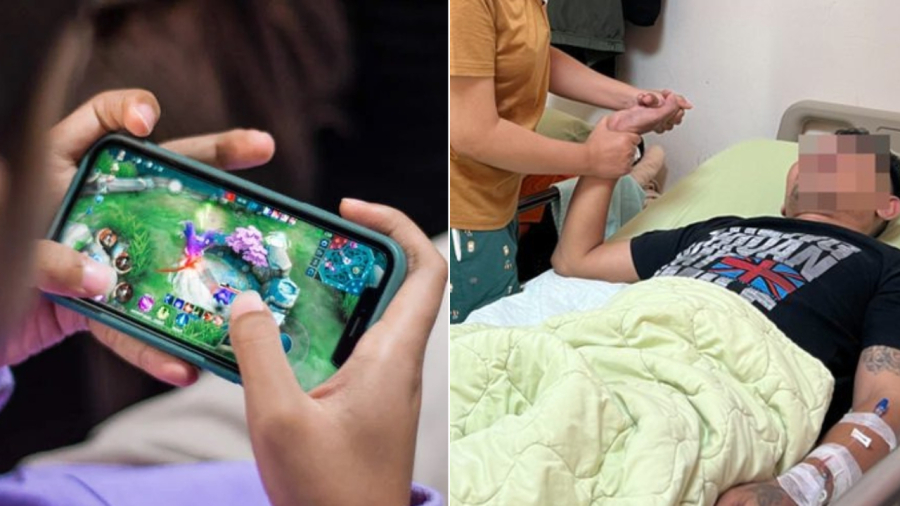Lưu Đinh (22 years old, from Ninh Ba, China) has a passion for playing video games. He thinks that going to bed before 2am is a “waste of life,” so this young man always stays up very late.
One day, Lưu Đinh played games late into the night as usual. Suddenly, he felt dizzy, had a headache, and his hands were no longer agile. However, he didn’t pay much attention to it. The next day, Lưu Đinh found that he couldn’t move half of his body, so he asked his family for help.
When Lưu Đinh was taken to the hospital, he couldn’t move the left half of his body. After the examination, the doctor said that the golden time for treatment had been missed and there was nothing more they could do. After a few days in the hospital, Lưu Đinh was taken back to his hometown for treatment.
Dr. Phan Que Hoa, Deputy Head of the Neurology Department at Ninh Ba Hospital (China), who directly treated Lưu Đinh, shared that the patient was only 22 years old but had been smoking for more than 10 years, liked drinking alcohol, sitting for long periods of time, and staying up late regularly. The combination of these unhealthy habits led to this young man having a stroke at a very young age.
Dr. Phan Que Hoa said that Lưu Đinh had severe atherosclerosis. This disease occurs due to the accumulation of lipids and the proliferation of fibroblasts. These are components that damage the blood vessel endothelium. They will form plaques on the arterial endothelium. These plaques can rupture, detach, and lead to the formation of blood clots, causing the blockage of blood vessels. As a result, the patient suffered a stroke along with many dangerous complications.

Illustrative photo
Currently, stroke patients tend to be “younger.” According to Dr. Phan Que Hoa, who has more than 20 years of experience in the field of neurology, if in the past, the majority of stroke patients were over 60 years old, in recent years, the number of young people with the disease has significantly increased. Stroke at the age under 40 is considered as early-onset stroke.
The doctor stated that young stroke patients often have some common characteristics such as smoking, lack of exercise, poor diet, and may have some underlying conditions like hypertension, diabetes that they either don’t know about or know but don’t intervene or treat.
The golden time for rescuing stroke patients is within 4-5 hours. If the patient arrives at the hospital 1 minute earlier, 1.9 million nerve cells can be saved. After the golden time, the number of brain cells in the affected area will suffer from partial ischemia and gradually become necrotic.
Many young people, when they experience unusual symptoms in their bodies, often don’t think of having a stroke leading to a delay in treatment. For example, in the case of Lưu Đinh, the treatment was delayed for nearly 20 hours.





































